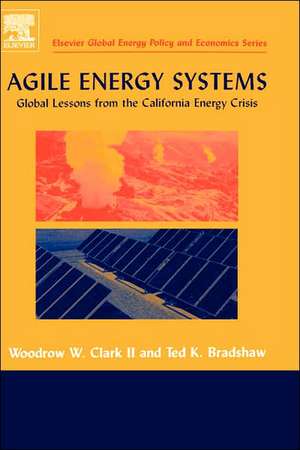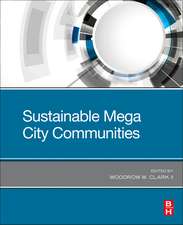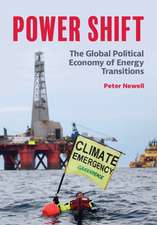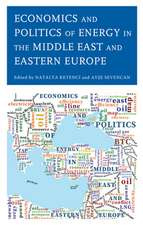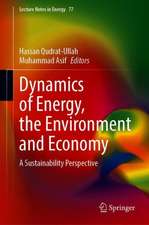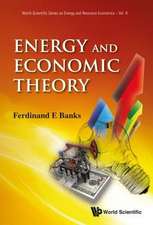Agile Energy Systems: Global Lessons from the California Energy Crisis: Elsevier Global Energy Policy and Economics Series
Autor Woodrow W. Clark II, Ted Bradshawen Limba Engleză Hardback – 26 sep 2004
- Empowering decision makers by setting the vision for a new approach to energy systems and providing the tools and plans to achieve these objectives
- Provides specific and actionable public policy and programme tools
- Help solve energy issues worldwide by illustrating how the lessons learned from the California energy crisis can be used to create an agile energy system for any region in a country
The second half of the book examines how "civic market", new economic models, and planning for a sustainable economic environment counteracted these five forces to create an "agile energy system". This system is based on renewable energy generation, hybrid or combined and distributed generation technologies. Such an agile system can be a new paradigm for both energy efficiency and reliability for any region or country, in contrast to the brittle centralized energy grid systems created by deregulation. Furthermore, the book overviews how the future of energy systems rests in the emerging "clean" hydrogen economy.
- Empowering decision makers by setting the vision for a new approach to energy systems and providing the tools and plans to achieve these objectives
- Provides specific and actionable public policy and program tools
- Helping to solve energy issues worldwide by illustrating how the lessons learned from the California energy crisis can be used to create an "agile energy system" for any region or country
Preț: 947.51 lei
Preț vechi: 1297.96 lei
-27% Nou
Puncte Express: 1421
Preț estimativ în valută:
181.33€ • 196.90$ • 152.32£
181.33€ • 196.90$ • 152.32£
Carte tipărită la comandă
Livrare economică 23 aprilie-07 mai
Preluare comenzi: 021 569.72.76
Specificații
ISBN-13: 9780080444482
ISBN-10: 0080444482
Pagini: 510
Dimensiuni: 165 x 240 x 26 mm
Greutate: 0.9 kg
Ediția:New.
Editura: ELSEVIER SCIENCE
Seria Elsevier Global Energy Policy and Economics Series
ISBN-10: 0080444482
Pagini: 510
Dimensiuni: 165 x 240 x 26 mm
Greutate: 0.9 kg
Ediția:New.
Editura: ELSEVIER SCIENCE
Seria Elsevier Global Energy Policy and Economics Series
Public țintă
Energy decision makers, researchers, public policy workers and company executivesCuprins
The End of the Old Order: The Roots of Restructuring; Energy System Change in a Global Context; Energy System Change in a Global Context; Technological Change: From a Vertically Integrated to a Dispersed Electrical System; The Derregulation Debacle; Economic Models and Market Change; Knowing and Managing Complex Power Systems; Economic development and the Energy Crisis; Advanced Technologies for an Agile Energy System; Civic Markets: Public Oversight of an Agile Energy System; Civic Capitalism: A new economics for the public good; Planning for a Complex Infrastructure; Economic Development: Sustainability is Defined Improving Local Economies; The Hydrogen Freeway: The Road Ahead; Conclusion
Recenzii
"This book, is literature for a broad range of readers from public and private energy companies to policy makers to energy engineer who are interested particularly in the integration of energy policy with sustainable development".... "The authors are academics and researchers in renewable energy issues with international perspectives." --W.W. Clark 2, Ted Bradshaw, Elsevier Press, 2004. Agile Energy Systems: Global Lessons from the California Energy Crisis
